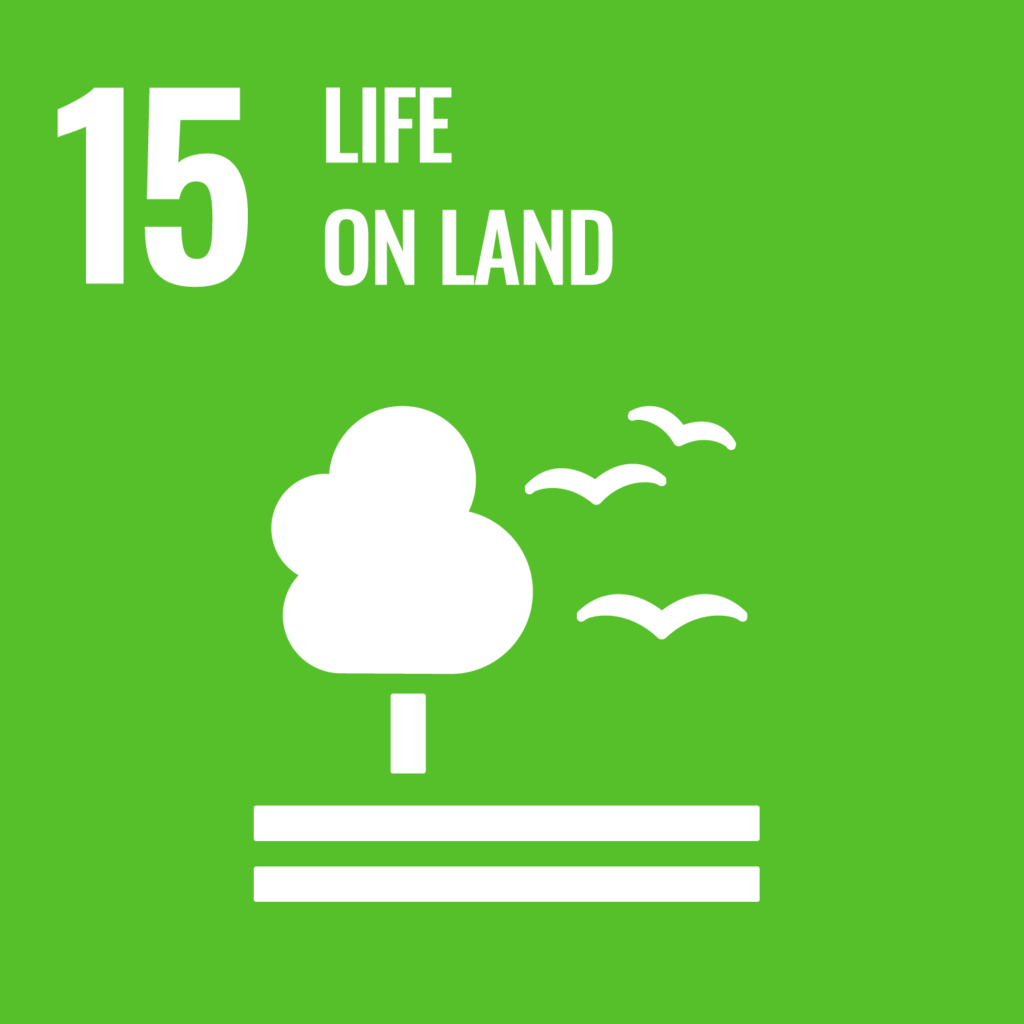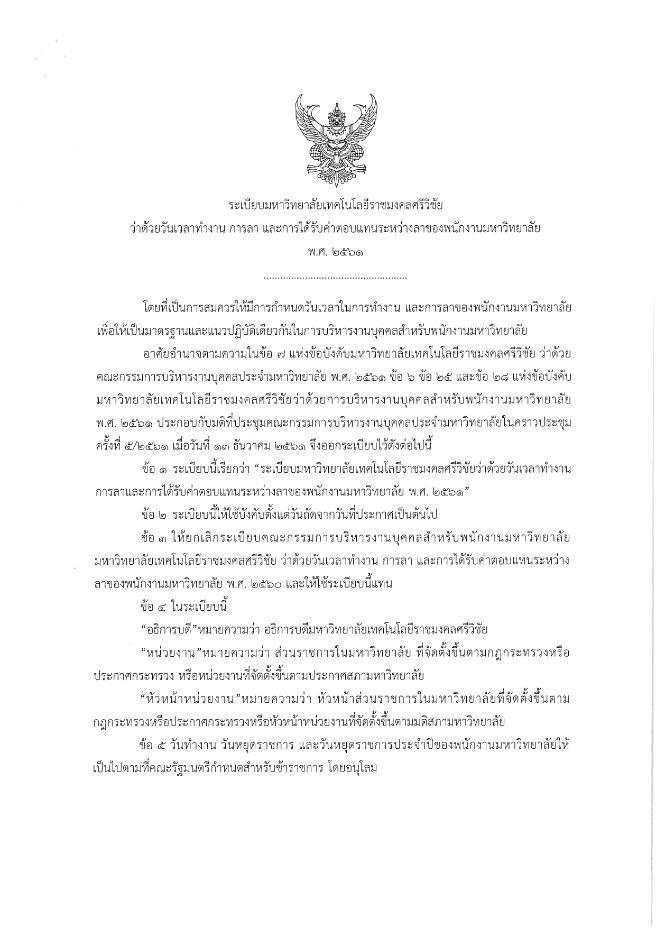Reporters: Asst.Prof.Dr. Prapot Maliwan
Assoc.Prof.Dr. Pornsil Seephueak
Asst.Prof.Dr. Nion Chirapongsathonkul
Asst.Prof.Dr. Worawitoo Meesook
Evidence Date: during 2024 Jan-Dec
Related Indicators: 15.2.1
Details:
The Faculty of Management Technology, Rajamangala University of Technology Srivijaya (RUTS), under the leadership of Asst. Prof. Payomporn Raksachon, has initiated a research project titled “Value Chain Management of the Sago Palm Business in Phatthalung Province.” This project supports RUTS’s policy to integrate research, community service, and environmental sustainability. The main objective is to enhance the ecological and economic value of the sago palm (Metroxylon sagu) ecosystem through community participation and sustainable management. Sago palm forests represent important wetland ecosystems that support fish, amphibians, insects, and other aquatic species. The project emphasizes the conservation of these natural habitats while improving water quality and soil health. Through local engagement, the project promotes awareness of ecosystem services provided by sago palm areas. Community members play a vital role in protecting biodiversity while benefiting economically. This initiative highlights the connection between ecological conservation and local livelihood enhancement.
The research demonstrates how sustainable utilization of sago palm resources can strengthen both biodiversity protection and rural economies. The project focuses on developing a value chain model that links ecological restoration to economic gain. Local communities are encouraged to use sago palm trunks and leaves as natural materials for crafts and food production. An innovative example includes using sago palm resources to support the rearing of the sago palm weevil (Rhynchophorus ferrugineus), an edible insect high in protein. This activity provides a sustainable protein source, aligning with global efforts toward food security and circular economy practices. The integration of traditional knowledge with scientific research ensures that resource use remains balanced and environmentally responsible. By combining conservation with utilization, the project strengthens eco-friendly economic development. RUTS encourages students and local stakeholders to engage in knowledge-sharing activities, ensuring long-term impact. This model reflects the university’s vision of promoting innovation within natural resource management.
Ultimately, the Sago Palm Value Chain Project serves as a model of RUTS’s policy on “Conservation Together with Utilization.” It demonstrates how research can lead to real-world applications that improve both community well-being and environmental sustainability. Through the project, researchers and community members collaborate to restore wetland habitats while creating new economic opportunities. The success of this initiative highlights the importance of linking academic research with community-based implementation. The project supports Thailand’s Sustainable Development Goals (SDGs), particularly in the areas of biodiversity conservation, responsible production, and poverty reduction. By promoting ecosystem health and responsible use of natural materials, RUTS contributes to national and regional sustainability efforts. Furthermore, this work inspires students to pursue applied research that connects classroom learning with practical conservation. It also builds a strong foundation for future biodiversity-based enterprises in southern Thailand. The university remains committed to extending this model to other provinces to strengthen Thailand’s green economy.
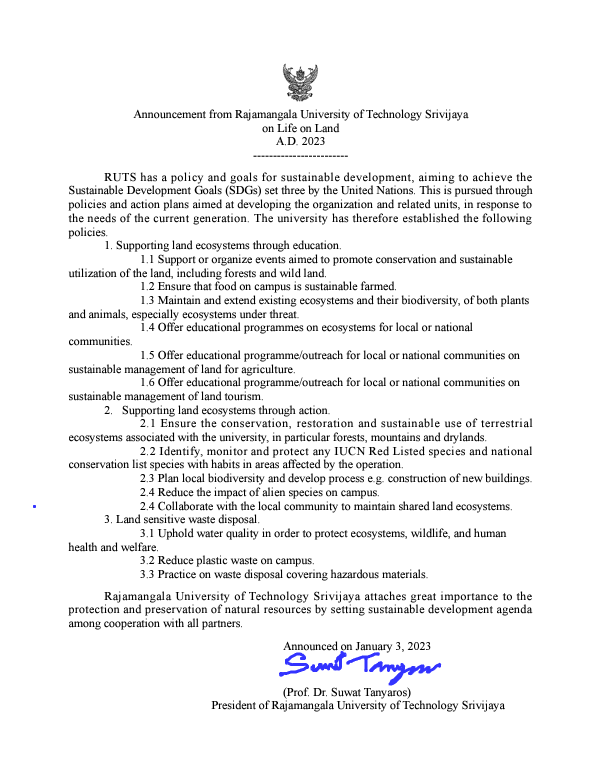
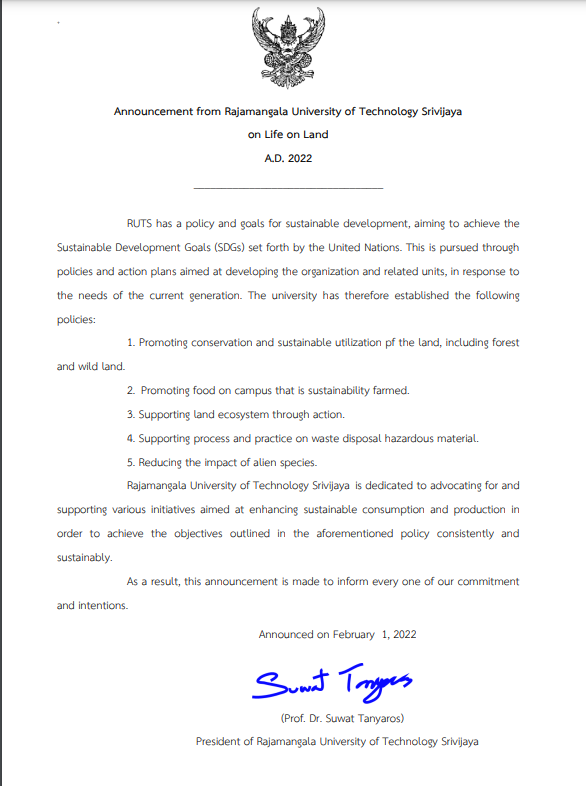
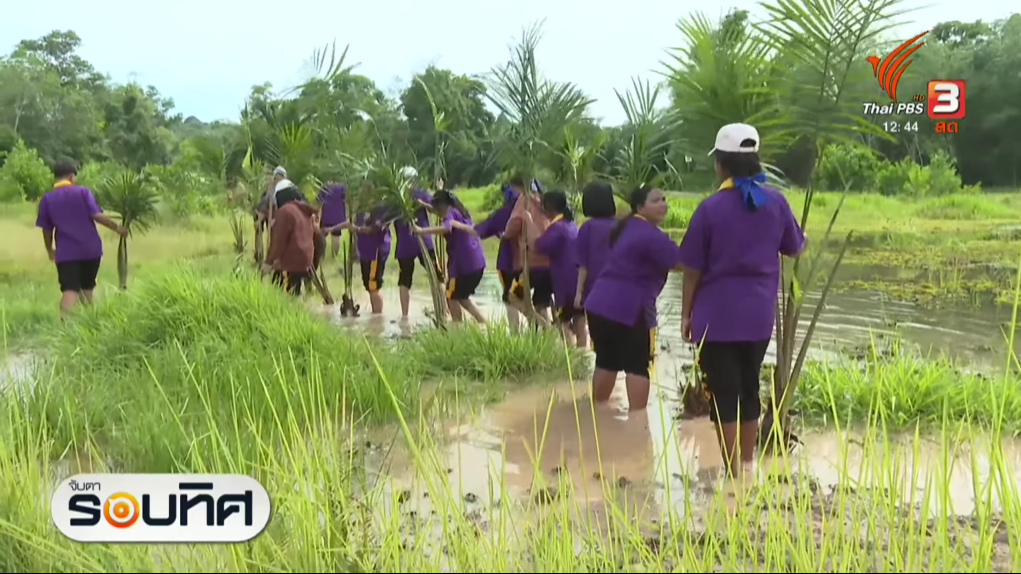
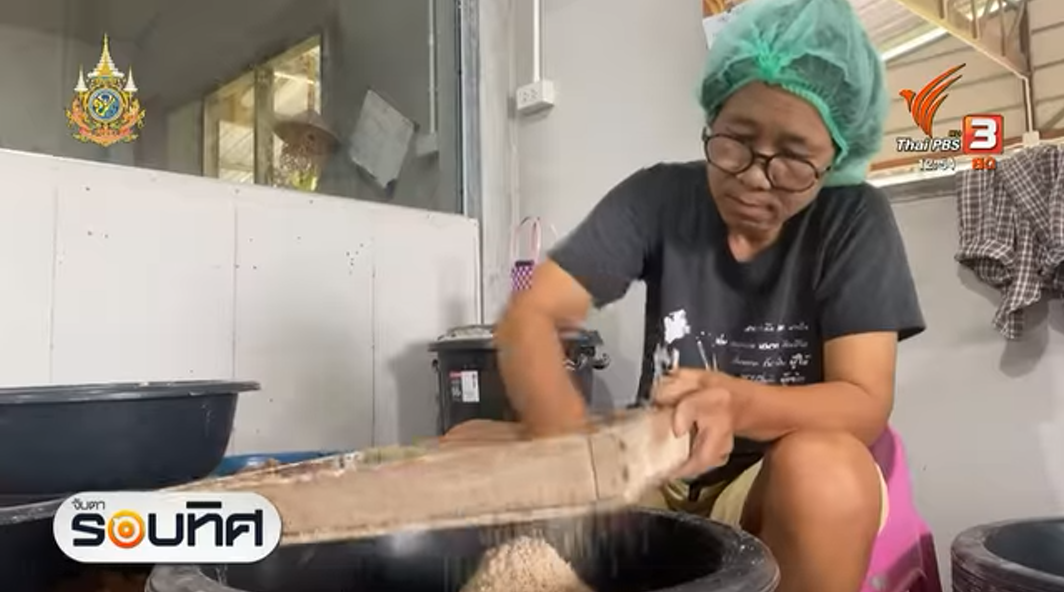
Related Links:

